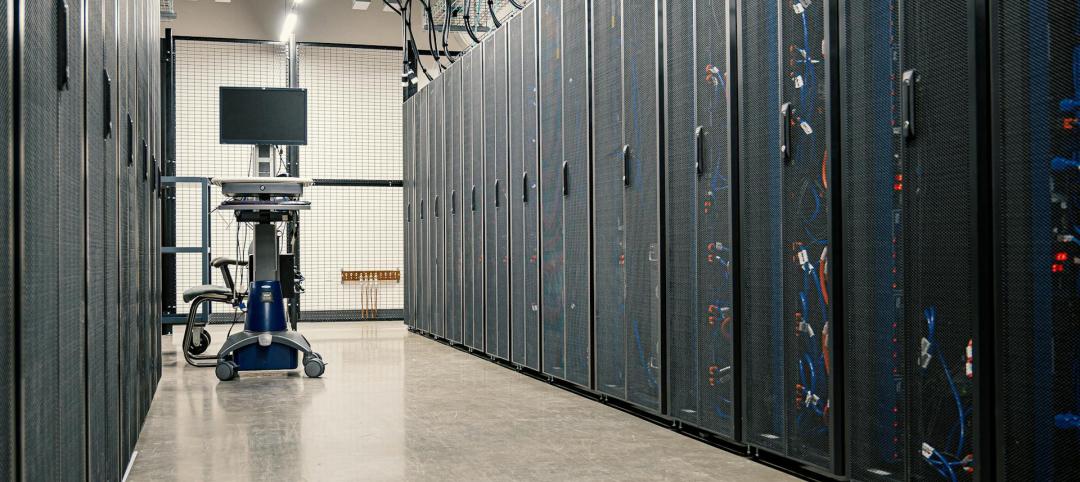VÉLIZY-VILLACOUBLAY, France – May 12, 2011 - Dassault Systèmes, a world leader in 3D and Product Lifecycle Management (PLM) solutions, and Gehry Technologies (GT), a technology and services provider to leading owners, developers, architects, engineers, general contractors, fabricators, and other building industry professionals worldwide, announced today that Gehry Technologies’ Digital Project products will be integrated into the Dassault Systèmes’ portfolio and distributed through Dassault Systèmes’ direct and indirect sales channels.
Digital Project is a suite of powerful 3D building information modeling (BIM) applications created by Gehry Technologies using Dassault Systèmes’ CATIA as a core modeling engine. Digital Project features design, engineering and project management in a comprehensive 3D environment specifically tailored to the architecture, engineering and construction industry. Since its inception in 2004 Digital Project has been used for some of the world’s emblematic structures, from commercial and institutional building projects to large scale infrastructure works. GT has successfully used Digital Project to address challenging design and project management issues on such landmark projects as the World Trade Center site, Beijing National Olympic Stadium, the Lincoln Center redevelopment, and the Burj Kalifa Tower, the world’s tallest building, to name a few.
This agreement allows for broader distribution of GT’s Digital Project and leads the way for Dassault Systèmes’ longer term diversification strategy to address this market while providing an opportunity for Gehry Technologies to focus on its new project delivery and Web service offerings. Leveraging advanced integrated digital design technologies, unique collaboration capabilities, deep knowledge of the industry, and dedicated services will enable construction customers to run multi-discipline parametric modeling regardless of the building project scale and complexity while allowing BIM implementations across the entire project team, including architects, structural engineers, MEP engineers, contractors and fabricators.
“Dassault Systèmes PLM solutions have been successfully deployed in manufacturing industries and we strongly believe that they can bring significant value in addressing the needs of construction companies, as demonstrated by leading construction customer projects in recent years,” said Etienne Droit, CEO, CATIA, Dassault Systèmes. “Digital Project has already proven its unique capacity to make the most complex projects in the world successful and we are thrilled to take this long-lasting partnership one step further by bringing advanced solutions specifically developed for the construction sector to our customers.”
“GT’s mission is to help architecture realize its highest ambitions: meeting the needs of clients and communities through aspiration designs that are delivered on time and on budget,” added Dennis Shelden, CTO, Gehry Technologies. “Digital Project, based on Dassault Systèmes’ CATIA, gives designers power of control, design, budget, and scheduling… We think that this agreement will accelerate the adoption of Digital Project within the construction world, enabling more innovative buildings and structures.”
About Gehry Technologies
Gehry Technologies (GT) provides design and project management technology and consulting services to leading owners, developers, architects, engineers, general contractors, fabricators, and other building industry professionals worldwide. GT solutions increase creativity and control; reduce project risks, costs, and completion times; and improve processes and decisions through collaboration, project visibility, and information access. Gehry Technologies is privately held, with offices in Los Angeles, New York, Paris, Mexico City, Abu Dhabi, Hong Kong, Shanghai, and Beijing.
About Dassault Systèmes
As a world leader in 3D and Product Lifecycle Management (PLM) solutions, Dassault Systèmes brings value to more than 130,000 customers in 80 countries. A pioneer in the 3D software market since 1981, Dassault Systèmes applications provide a 3D vision of the entire lifecycle of products from conception to maintenance to recycling. The Dassault Systèmes portfolio consists of CATIA for designing the virtual product - DELMIA for virtual production - SIMULIA for virtual testing - ENOVIA for global collaborative lifecycle management, EXALEAD for search-based applications- SolidWorks for 3D mechanical design and 3DVIA for online 3D lifelike experiences.
Related Stories
Curtain Wall | Aug 15, 2024
7 steps to investigating curtain wall leaks
It is common for significant curtain wall leakage to involve multiple variables. Therefore, a comprehensive multi-faceted investigation is required to determine the origin of leakage, according to building enclosure consultants Richard Aeck and John A. Rudisill with Rimkus.
MFPRO+ News | Aug 14, 2024
Report outlines how Atlanta can collaborate with private sector to spur more housing construction
A report by an Urban Land Institute’s Advisory Services panel, commissioned by the city’s housing authority, Atlanta Housing (AH), offered ways the city could collaborate with developers to spur more housing construction.
Adaptive Reuse | Aug 14, 2024
KPF unveils design for repositioning of Norman Foster’s 8 Canada Square tower in London
8 Canada Square, a Norman Foster-designed office building that’s currently the global headquarters of HSBC Holdings, will have large sections of its façade removed to create landscaped terraces. The project, designed by KPF, will be the world’s largest transformation of an office tower into a sustainable mixed-use building.
Sustainability | Aug 14, 2024
World’s first TRUE Zero Waste for Construction-certified public project delivered in Calif.
The Contra Costa County Administration Building in Martinez, Calif., is the world’s first public project to achieve the zero-waste-focused TRUE Gold certification for construction. The TRUE Certification for Construction program, administered by Green Business Certification Inc. (GBCI), recognizes projects that achieve exceptional levels of waste reduction, reuse, and recycling.
Modular Building | Aug 13, 2024
Strategies for attainable housing design with modular construction
Urban, market-rate housing that lower-income workers can actually afford is one of our country’s biggest needs. For multifamily designers, this challenge presents several opportunities for creating housing that workers can afford on their salaries.
University Buildings | Aug 12, 2024
Planning for growing computer science programs
Driven by emerging AI developments and digital transformation in the business world, university computer science programs are projected to grow by nearly 15% by 2030.
Energy Efficiency | Aug 9, 2024
Artificial intelligence could help reduce energy consumption by as much as 40% by 2050
Artificial intelligence could help U.S. buildings to significantly reduce energy consumption and carbon emissions, according to a paper by researchers at the Lawrence Berkeley National Laboratory.
Sponsored | Healthcare Facilities | Aug 8, 2024
U.S. healthcare building sector trends and innovations for 2024-2025
As new medicines, treatment regimens, and clinical protocols radically alter the medical world, facilities and building environments in which they take form are similarly evolving rapidly. Innovations and trends related to products, materials, assemblies, and building systems for the U.S. healthcare building sector have opened new avenues for better care delivery. Discussions with leading healthcare architecture, engineering, and construction (AEC) firms and owners-operators offer insights into some of the most promising directions. This course is worth 1.0 AIA/HSW learning unit.
Office Buildings | Aug 8, 2024
6 design trends for the legal workplace
Law firms differ from many professional organizations in their need for private offices to meet confidentiality with clients and write and review legal documents in quiet, focused environments
Data Centers | Aug 8, 2024
Global edge data center market to cross $300 billion by 2026, says JLL
Technological megatrends, including IoT and generative AI, will require computing power to be closer to data generation and consumption, fueling growth of edge IT infrastructure, according to a new JLL report.
















